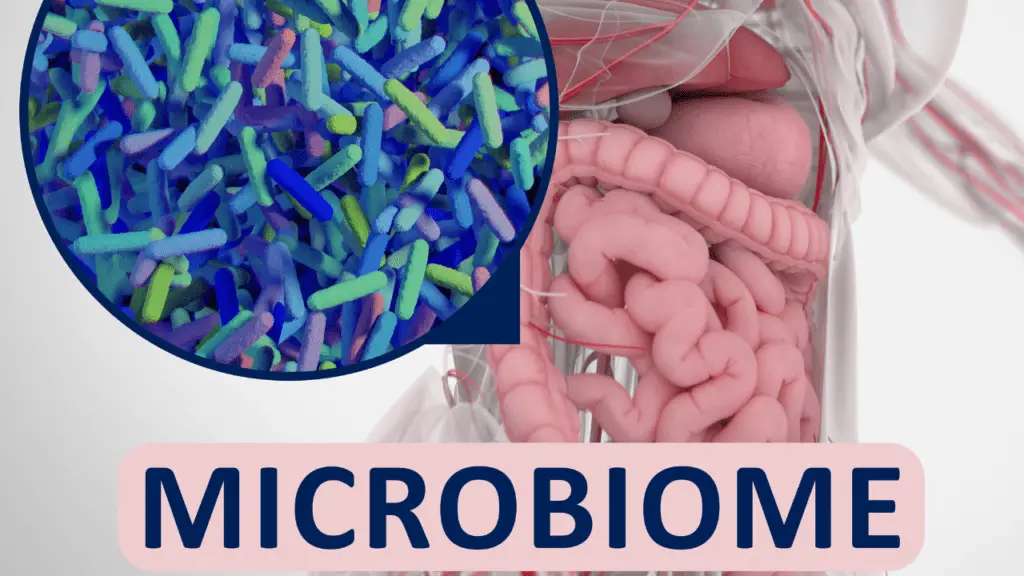A healthy body could make you feel you're on top of the world. At the same time, a single symptom or unhealthy system in the body can affect your entire body.
One of the most common victims of harmful habits is our gut system. Whether jumping on a crazy diet bandwagon for weight loss or spending the whole day on the couch, your gut health is begging you to change your lifestyle.
While many overlook our gut health, it's never too late to start working on it. Let's explore what it means to have a healthy gut and how to achieve it in this guide.
What is Good Gut Health?
Starting with the term ‘gut' is your body's primary digestive system. It is comprised of organs, including the food pipe, stomach, intestines, liver, pancreas, gallbladder, and anus. Bear in mind that's not all there is to the gut system.
Another mechanism most people are unfamiliar with is the gut microbiome. There are innumerable microorganisms in our gut performing multiple functions that assist the digestion process. The digestive organs and gut microbiome combine to break down food, absorb nutrients, and produce energy for the body.

A healthy gut is when your digestive system is at its best, including the gut flora. The more diverse your gut ecosystem is, the better your digestive health will be. If there's a problem with an organ or in the gut microbiome balance, that's when you'll face digestive issues.
Common Signs of an Unhealthy Gut
There could be various reasons for gut health problems. Although, the first step to treating any condition is noticing the red flags. Whenever any system in our body is down, the body sends signals. The next time any of the below signs are present, schedule an appointment with your doctor immediately.
Digestive Symptoms:
These are the preliminary sign that something is wrong in your gut. Digestive symptoms include constipation, diarrhea, nausea, and bloating. Usually, if you're experiencing these once in a blue moon, it's temporary, and your gut will return to normal. Alternatively, get it checked if you've been experiencing these symptoms recurrently or for more extended periods.
Sudden Weight Changes:
A sudden weight change is never healthy, whether you're gaining or losing weight. Weight loss from malabsorption due to a problematic gut could be caused by gut problems, for instance, a leaky gut.

Similarly, higher than-normal inflammation levels in the gut can increase weight in some cases.
Lack of Energy:
No need to be alarmed if you're drained after a tough day at work. You may not be getting enough nutrients to produce energy throughout the day. On the other hand, getting tired quickly, i.e., fatigue, day after day, is a cause of concern. Even lack of sleep is scientifically proven to be linked to gut problems.
Intolerance to Certain Foods:
Suppose you've noticed an upset stomach or nausea after eating a specific food or food group. The reason may be food intolerance, and it's not uncommon. Undoubtedly, food intolerance in individuals has been increasing significantly in the past few years. If that pasta has you rushing to the bathroom with a diarrhea episode every time, it may be time to see your medical practitioner.
How to Improve Your Gut Health
To get on the path to better gut health, you might need to make several changes in your routine. It may seem overwhelming but start with simple shifts to healthier habits. Below are some ways you can improve your gut health:
Start By Eating A Healthy Diet
Dieting for better gut health doesn't mean you must stop eating or cut out entire food groups. That's what many presume, but you're doing your gut more harm than good. A healthy diet is diverse and balanced; only then can it benefit your gut in every way.
Add vegetables, fruits, legumes, beans, and protein to your meal plans. Plant-based foods and whole grains also have heaps of nutritional components. Additionally, whole grains, vegetables, and legumes are incredible sources of fiber, another essential compound for our gut.

Make weekly meal plans where you can mix and match food ingredients to ensure you're eating everything.
Eliminate Processed Foods
Grabbing a snack or drinking juice occasionally isn't catastrophic for your gut health. Making a habit of it, though, certainly isn't healthy for your body.
Recent studies show the significant amounts of preservatives and additives in processed foods. The sugar in most processed foods spikes blood sugar levels, increasing the risk of diabetes and obesity.
Another beneficial practice for your gut health is to lower snacking. You may be getting those ‘healthy chips' off the shelves, but even those aren't doing your body any good. On top of that, continuous chewing produces acid in the stomach, which leads to gut inflammation.
We shouldn't consume these processed foods, but we can start reducing their usage. Switch processed foods to their natural alternatives.
Move Your Body
Most of us don't dream about exercising the next day. It sounds like another chore to add to your lengthy to-do list, but your gut needs it.
With medical research, it's coming to light that regular exercise can pave the way toward a healthy gut. For instance, a medical study between athletes and non-athletes showed that the athletic group had a more diverse gut microbiome.

Exercising for a few minutes of your day can also prevent several gut diseases. You don't need to spend hours or join a gym; 30-75 minutes of aerobics daily does the job!
Stay Hydrated
Every medical expert, nutritionist, and dietician continues to emphasize the benefits of water for a healthy body. You can't even begin to imagine the numerous body functions that are disrupted if you're dehydrated. If you're trying to increase your water intake for glowing skin, you're boosting your gut health, too.
Water improves digestion in your gut in numerous ways. Water is essential to good gut health, from breaking down food to absorbing nutrients in the bloodstream. Not only that but the diversity and efficiency of your gut microbiome depend on water.
Drinking enough water has many health benefits, from supporting skin health to helping with brain function. The amount of water you drink also influences your microbiome. Staying hydrated can also decrease the chances of irregular bowel movements. Download an app that alerts you to drink water throughout the day if you can't keep track.
Destress
Another misconception is that stress only influences your mental health. Stress affects your entire body and its physical functions.
Experts know there's a direct connection between the brain and the gut through the Vegas Nerve. Stress can cause gut problems, and gut problems can cause stress; both are possible.
For instance, studies have shown an increased risk of mental health disorders in IBS patients. Also, it can disrupt the natural balance of your gut microbiome, further leading to digestive issues.

Identify and manage your triggers to reduce stress levels and improve gut health. Medical experts recommend stress management practices like meditation and muscle relaxation. A healthy diet and regular exercise contribute to lowering stress levels as well.
Focus on Your Eating Habits
We're becoming more used to the ‘grab and go' eating routine daily. After all, life is getting busier day by day. Who has the time to sit down and focus on their food anymore? The thing is, you do need to start making time for it.
Mindfulness is an approach that's been practiced since medieval times and is gaining popularity once again. Your physical and mental health is aligned when you focus on your food.
You're more conscious of what you're eating and doing it slowly instead of gobbling it down. Mindful eating has various benefits for your gut health, such as better digestion, reduced overeating, lower stress levels, and better food choices. Even small habits like chewing more improve digestion.
Start by getting up earlier to start your day and eating breakfast slowly. Put away your devices and form a relationship with food.
Take Probiotics
Nothing beats the nutrition your body gets from whole, natural foods. However, nowadays, the food in grocery stores and our diets aren't always fulfilling our nutritional requirements. One such component you may be overlooking is probiotics.
Probiotics are healthy bacteria and yeast in the gut tract. While our body makes its own set of probiotics naturally, it often needs help when there's a disruption. The unbalance of the gut microbiome increases the production of harmful bacteria, thus, increasing the onset of digestive issues.

You can get probiotics from a handful of foods like yogurt, kefir, pickles, miso, sourdough bread, etc. However, sometimes that may not be enough. In that case, consult a medical expert and add supplements to your diet to maintain your nutrition levels.
Limit Alcohol Intake
It's not rocket science that alcohol is one of the worse things for your liver. Studies show it doesn't benefit gut health much if you drink excessively. No need to eliminate alcohol intake since an occasional glass can benefit your gut health. But overdo it, and that's where the trouble begins.
For starters, digestive symptoms are one of the first signs that you may be drinking too much alcohol. Inside your gut, increased alcohol amounts cause inflammation, the primary symptom of gut conditions like gastritis and IBS. Besides that, it can also throw your gut microbiome off balance by increasing the reproduction of harmful bacteria.
If you're drinking alcohol, go for red wine due to its numerous gut health benefits. Keep your alcohol intake levels at a minimum.
Take Prescribed Medicines Only When Needed
Always running to the doctor because of any minor issue? Having the doctor prescribe medicine when you likely don't need it may destroy your gut health. Some of the most commonly prescribed meds, like antibiotics, painkillers, and birth control, are detrimental to gut health.
Of course, there are always situations when you will need a prescription. But remember that these medications are notorious for damaging the intestinal lining, increasing inflammation, and negatively influencing the gut microbiome.
Get Regular Sleep
Sleeping may seem odd to improve your gut health, but it isn't. Every system inside your body, including the gut, follows your body's internal clock. The body's peak performance happens when you're awake and getting through the day. At night, your body rests, recovers, and prepares for the next day.

Irregular sleep patterns can disturb the gut microbiome, increase stress levels, and reduce the overall efficiency of the gut. Neither your brain functions correctly nor is your gut happy if you're not getting sufficient sleep.
There are endless methods to improve your sleep cycle. Do any physical activity a few hours before bedtime and power off electronic devices an hour earlier. These tips will help your body get ready to shut down. You can also turn on white noise to relax. Make a proper sleep schedule to sleep and wake up every day at fixed times.
Final Verdict
Each body system is interconnected, so your entire body will be affected if your gut is unhealthy.
Follow these practices and add them one by one to your daily routine. Soon, you'll start noticing a change in your gut health for the better.






